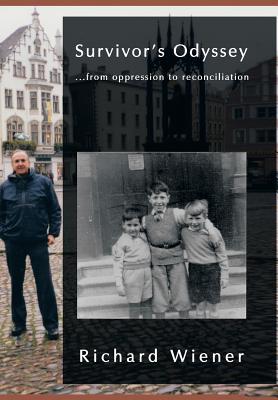As I sit by my window, gazing out over the autumnal park, the turning leaves straining in the gusting west wind, and a suggestion of morning sun stippling a clump of trees in the near distance, my thoughts return to the view from my childhood room on Lutherstrasse, a bourgeois, cobblestone-paved street in Wittenberg lined with neatly spaced lindens.
How tranquil it all seemed then. Like other early childhoods contemplated late in life, mine seems idyllic in retrospect. A cozy home, devoted parents, playmates and relatives nearby. Who could have predicted then that Wittenberg, this ancient town, the cradle of the Protestant Reformation, would soon, like the rest of Germany, be swept up in the fanaticism and hysteria of National Socialism?
When did I first realize that I was not just another German child, that I was merely tolerated, later reviled, and finally cast out? How strange it seems now that it took so long for me to comprehend that what was happening to me and my fellow Jews was extraordinary.
